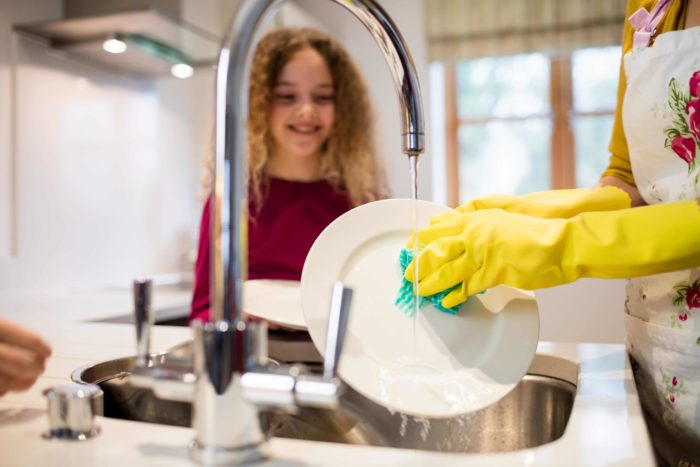You use it every day without thinking about the potential danger it could pose for your health.
Researchers at the University of Furtwangen performed DNA analysis on 14 sponges for vessels that were collected from private households and found no less than 362 different bacteria, surpassing in number even the bacteria found on the toilet bowl. Because kitchen sponges are always moist and made to absorb moisture, they can accumulate bacteria such as Staphylococcus, Salmonella or E. coli.
The study clarified that most bacteria found in dish sponges were not dangerous, but there were also pathogens that could cause infections in humans.
„Kitchen sponges act not only as a reservoir of microorganisms, but also as disseminators to kitchen surfaces, which can lead to cross-contamination between hands and food, considered one of the main causes of food poisoning outbreaks”, the researchers from the University of Furtwangen said.
The same group of researchers found that classical methods of cleaning dish sponges kill only about 60% of bacteria. Their recommendation is to replace the kitchen sponges weekly to reduce the risk of contamination posed by bacteria accumulated in this object.
However, if you want to reduce the risk of contaminating other surfaces in the kitchen, you can soak the dish sponge in diluted water with a small amount of chlorine, for 10 minutes, for a deeper disinfection. After that, squeeze the sponge well and leave it to dry in a place away from moisture.
The safest option is, however, to change the dish sponge frequently and not wait until it gets too dirty or smells bad.
On the second place, after the dish sponge, in the top of the most dangerous objects in the kitchen is the hand towel, followed at a short distance by the mobile phone, which we tend to carry with us everywhere and touch it often, even while we cook.
Also, we can include on the list of the most dirty objects in the house the toothbrush holder (the third most germ-infested household item), purses and handbags, plus the office desk. Proper cleaning and disinfection is necessary on a daily basis, if you want to prevent the spreading of germs and bacteria that live on these items end up on your hands or worse, in your body.





